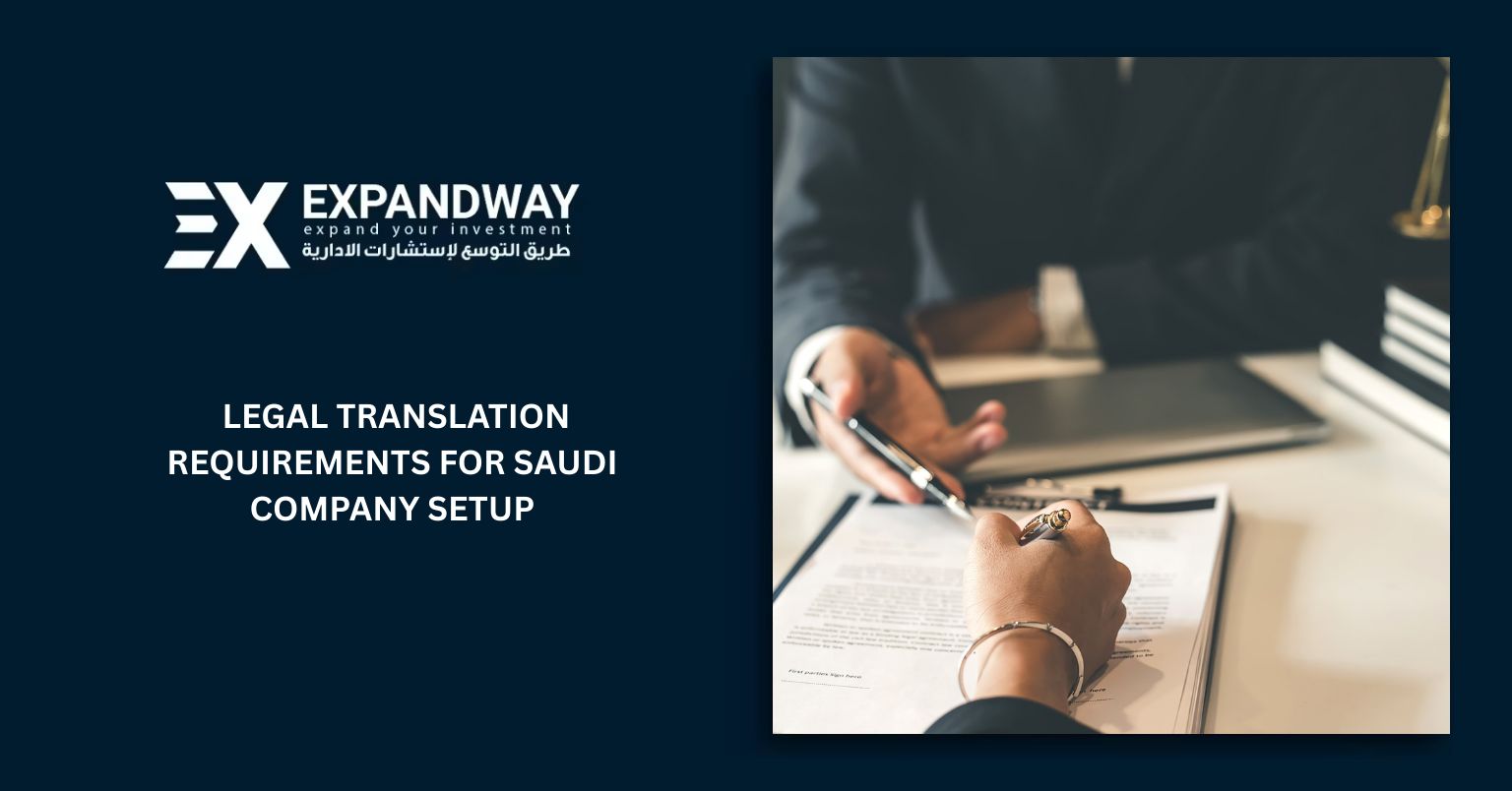Introduction
Setting up a business in Saudi Arabia has become increasingly attractive for global investors. Vision 2030 reforms and new incentives make the country a hub for international expansion. However, one crucial step often slows investors: legal translation.
Since Arabic is the official language, investors must translate every non-Arabic document through certified translators. If you ignore this step, authorities may reject your application, delay your approval, or even impose penalties. Therefore, understanding the latest translation requirements in 2025 is essential for a smooth company setup.
Why Legal Translation Matters in Saudi Arabia
Legal translation plays a central role in business registration.
- Official language mandate – Government agencies accept documents only in Arabic.
- Regulatory compliance – The Ministry of Commerce (MOC) and the Ministry of Investment (MISA) recognize only certified translations.
- Accuracy and credibility – Certified translators ensure contracts, licenses, and financial data remain valid and legally binding.
As a result, you cannot complete the registration process without accurate translations.
Key Documents Requiring Translation
When you establish a company in Saudi Arabia, you must translate several documents:
- Memorandum and Articles of Association (MOA & AOA)
- Commercial Registration (CR) certificates
- Power of Attorney (POA)
- Board Resolutions
- Investment licenses
- Audited financial statements
In addition, ministries require these translations to be notarized and attested. Otherwise, they will not accept your paperwork.
Certification and Attestation Process
The process involves several mandatory steps:
- Certified Translator – You must hire a licensed translation office or a MOFA-approved translator.
- Notarization – The translator notarizes the document for authenticity.
- Attestation – Next, you submit documents to:
- The Ministry of Foreign Affairs (MOFA)
- The Saudi Embassy in the country of origin
- Government Submission – Finally, you present translations to the MOC, MISA, and other authorities for approval.
This sequence ensures every translated document holds full legal weight.
Foreign Investor Considerations
Foreign investors must follow extra steps:
- Registering the company name in Arabic and getting approval.
- Submitting Arabic versions of corporate charters for investment license issuance.
- Completing CR registration only after verified translations.
Moreover, incomplete or inaccurate translations lead to delays, fines, and rejected applications.
Choosing the Right Translation Service
You should choose your translation partner carefully. To avoid problems:
- Work with licensed Saudi translation offices or MOFA-accredited agencies.
- Select firms with strong legal expertise, not just general translation skills.
- Verify they have experience handling cross-border company documents.
For example, specialized agencies like Expandway and similar consultancies provide translation combined with setup support.
Best Practices for Investors in 2025
To save time and money, you should:
- Prepare all corporate documents early.
- Allocate time for notarization and embassy attestation.
- Collaborate with consultants who coordinate directly with certified translators.
- Double-check translations before submission.
Therefore, proactive planning helps you avoid unnecessary setbacks.
Conclusion & Call to Action
Legal translation is not just a formality—it is the foundation of business setup in Saudi Arabia. When you translate, notarize, and attest your documents correctly, you protect your investment from costly delays and legal risks.
👉 Ready to start your company formation journey in Saudi Arabia? Book a consultation with our specialists today and let certified translators and legal experts handle the process for you.
contact Us

